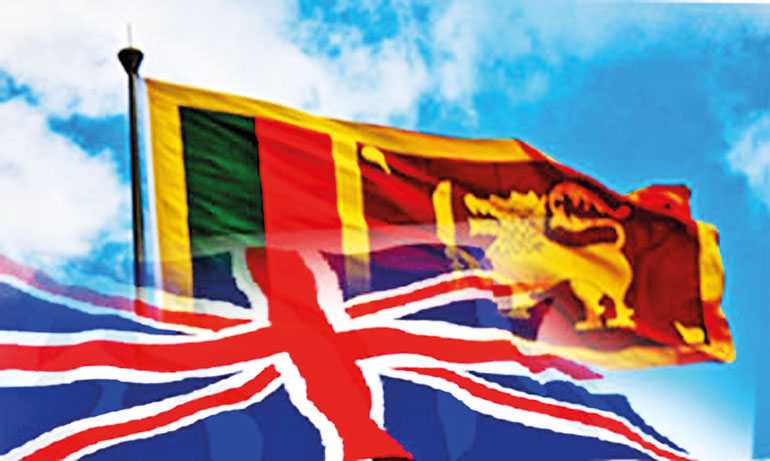As island nations, the United Kingdom and Sri Lanka both know the importance of trade for our prosperity and economic development. Trade creates jobs, stimulates investment, attracts technology and generates foreign exchange to pay off debt and fund public services. The UK is Sri Lanka’s second largest export market, with iconic brands such as M&S and Gymshark sourcing from Sri Lanka. To strengthen this relationship, this week the UK Government has been working with Sri Lankan partners to deliver a trade mission designed to bring together companies from both countries in the agri-produce and garment sectors. I have been lucky enough to be part of this mission which has introduced me to the riches that Sri Lanka has to offer and has convinced me of the power of trade to bring our countries together and to boost our economic growth.
Trade and Development
The UK Government takes trade and development seriously. I have the honour of leading a dedicated Trade for Development unit that looks at how to maximise the positive impact of trade for developing countries around the world. It takes action to open up UK markets for developing country exports through lower tariffs and simpler rules. It provides technical assistance to businesses and governments, including here in Sri Lanka, to help them compete in the global economy.
UK—Open for Business
The UK is open for business with Sri Lanka. Our Developing Countries Trading Scheme (DCTS) is a good example of how committed we are to growing free and fair trade with countries like Sri Lanka, boosting our economies and supporting jobs. The DCTS came into force in 2023 and made it even easier for Sri Lankan firms to export goods to the UK. We reduced tariffs so that 99 per cent of goods from Sri Lanka can now enter the UK duty free and we simplified the requirements for Sri Lanka to continue to benefit from these preferential tariffs, providing more certainty and security for exporters. Key Sri Lankan exports that benefit from zero or reduced tariffs under the DCTS include textiles, plastics, rubber, animal products, food and machinery. Sri Lanka also continues to benefit from rules which allow Sri Lanka to source raw materials from countries across South Asia and still pay zero tariffs on exports and we are looking at ways to improve this further.
UK Buyer Mission
As well as opening our markets to Sri Lankan goods, the UK provides practical, technical help to Sri Lankan businesses. This week, I have been delighted to accompany a UK-funded delegation of Presidents of British Chambers of Commerce and commercial buyers to Sri Lanka in collaboration with Sri Lanka’s Export Development Board (EDB) and supported by our partner, International Trade Centre (ITC), a trade subsidiary of the UN. Our mission brought together British businesses in the apparel and agri-food sectors with Sri Lankan exporters in order to foster business connections, clarify the requirements of the UK market and, in time I hope, to secure deals. During my trip, I have visited a range of businesses producing medicinal spices, exotic sauces, speciality mushrooms, handicrafts and apparel and throughout each visit I have been impressed with the quality of Sri Lanka’s products and the drive and determination of its business leaders.
Great Taste
The UK also provides direct support to small and medium-sized enterprises in Sri Lanka to help them promote their exports, find buyers and meet the standards required by export markets. UK support has helped Sri Lankan firms win international awards: I am pleased to say that despite stiff competition from over 12,500 products in the UK’s Great Taste Awards, 15 Sri Lankan exports won stars and awards with UK Government support. Plant Based Studios achieved significant recognition at the 2024 Nourish Awards with its Granola Bar and Coconut Jam, a win that has opened doors to new buyers and helped to increase exports.
Empowering Women
Gender equality is central to the aims of the UK Government. We believe that the economic empowerment of women is key to ensuring that they are able to contribute fully and equally to society, politics and economic growth. Trade is a big part of that, which is why the UK’s flagship women and trade programme, SheTrades, is also in operation in Sri Lanka. SheTrades aims to increase the participation of women-owned businesses in international trade through information, training and networking and through support to policy makers on reforms that support trade by women. We are very excited to be launching a new SheTrades Hub in Sri Lanka next year in partnership with the EDB which will act as the host institution for the hub.
Conclusion
The UK is committed to a prosperous, long-term trading relationship with Sri Lanka which enables us to grow both of our economies and to strengthen the bonds between us. Based on what I have seen (and tasted!) this week, I am certain that Sri Lanka’s award-winning produce will continue to find great success in the United Kingdom and beyond.
Simon Calvert is Head of Programmes in the Trade for Development Team at the Foreign Commonwealth and Development Office of the UK Government


